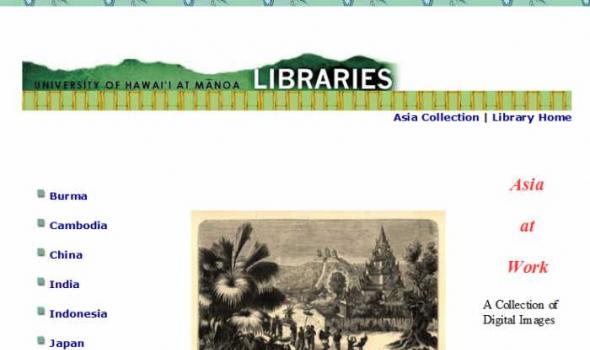Category: History & Historiography, English, American history, Maryland
Results
Maryland Digital Cultural Heritage About Maryland Digital Cultural Heritage (MDCH) is a collaborative, statewide digitization program headquartered at the Enoch Pratt Free Library/State Library Resource Center in Baltimore. Our program partners with Maryland libraries, archives, historical societies, museums, and other institutions to digitize and provide free online access to materials relating to the state's history and culture. Since the program began in 2002, MDCH's collections have grown to include over 5,000 items, such as maps, manuscripts, photographs, artwork, books, and other media. Tips for using our digital collections:
A note on the photographs in this exhibition Because of the huge number of images held by the National Archives and Records Administration (NARA), selecting photographs for this exhibition involved difficult and subjective choices. For the most part, the exhibit concentrates on developments within American society and on activities abroad where Americans were significant participants. The photographs from the White House Photo Office were included because they will become part of the Clinton Presidential Library, and because they allowed the exhibit to round out its coverage of the late 20th century.
Since the signing of the Declaration of Independence, our rights as citizens of the United States have been debated, contested, amended, and documented. The Bill of Rights, the first 10 amendments to the Constitution, established our basic civil rights. Later amendments and court decisions have continued the process of defining our human and civil rights. Documents in the National Archives give voice to our national struggle for personal rights and freedoms. From the Emancipation Proclamation to the five cases that comprised Brown v. Board of Education , this exhibit features a sampling of documents from all regions of the National Archives.
Looking Back on the American Century February 5 � April 30, 2000 In 1940 publisher Henry Luce used the phrase "the American Century" to describe the emergence of the United States as the preeminent world power. Beginning with the accession of a young and energetic Theodore Roosevelt to the Presidency in 1901, the United States began to turn its vast resources onto the world stage. Since that time, through world wars, depression, boom times, social upheavals, scientific and technological developments, and cultural trends, the United States vigorously placed its stamp of influence on the 20th Century. This exhibition presents a small taste of the American Century.
In 1761, fifteen years before the United States of America burst onto the world stage with the Declaration of Independence, the American colonists were loyal British subjects who celebrated the coronation of their new King, George III. The colonies that stretched from present-day Maine to Georgia were distinctly English in character although they had been settled by Scots, Welsh, Irish, Dutch, Swedes, Finns, Africans, French, Germans, and Swiss, as well as English. As English men and women, the American colonists were heirs to the thirteenth-century English document, the Magna Carta, which established the principles that no one is above the law (not even the King), and that no one can take away certain rights.
"American Originals" is a changing exhibit that has presented the nation's greatest documentary treasures in the Rotunda of the National Archives Building since December 1995. Over the years, the exhibit has featured the first printing of the Declaration of Independence, the police blotter listing Abraham Lincoln's assassination, the first report of the Titanic's collision with an iceberg, Rosa Parks's arrest records, and many other items. Both famous and rare, these documents provide unique insights into the towering figures and events that have shaped U.S. history.
Here will be preserved all . . . the records that bind State to State and the hearts of all our people in an indissoluble union. --President Herbert Hoover, upon laying the cornerstone of the National Archives Building, February 20, 1933 American Originals presents some of the most treasured documents in the holdings of the National Archives. They have passed through the hands of George Washington, Helen Keller, Wyatt Earp, Napoleon, Rosa Parks, and John Hancock, connecting us physically to another moment in time. While some of the documents announce their own importance with a grand design, others quietly mark a revolution.
Here will be preserved all . . . the records that bind State to State and the hearts of all our people in an indissoluble union. --President Herbert Hoover, upon laying the cornerstone of the National Archives Building, February 20, 1933 In 1803 the young republic nearly doubles in size with the Louisiana Purchase. A casualty list of the 54th Massachusetts Infantry Regiment reveals the sacrifices of the most celebrated African-American regiment that fought in the Civil War. A police blotter lists the assassination of President Abraham Lincoln, April 14, 1865.























